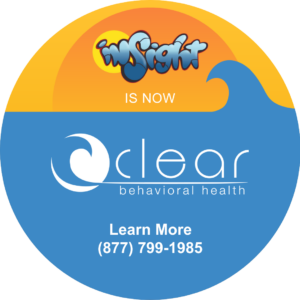Post Traumatic Stress Disorder Treatment
Home » What We Treat »
What is PTSD?
Post Traumatic Stress Disorder, also known as PTSD is a psychiatric disorder. It commonly arises in individuals who have experienced some sort of traumatic event. PTSD can occur in anyone regardless of age, sex, or ethnicity. It affects about 3.5% of U.S. adults. Typically, it affects more women than it does men.
Individuals with PTSD experience intense and painful thoughts about their past trauma long after that trauma has passed. They often feel sad, angry, or detached from reality. Because of these negative feelings, people with PTSD will sometimes disengage from their day-to-day lives. These intense feelings can also be triggered by nightmares and flashbacks. In order to diagnose PTSD, some traumatic event must have unfolded in a person’s life. This traumatic event isn’t always directly related to the person in question. PTSD can occur if the individual is exposed to someone else’s trauma.
One of the dangers of PTSD is the potential development of addiction. Many PTSD sufferers experience a co-occurring disorder, which only hinders the recovery process. Because of symptoms like insomnia, isolation, or emotional numbness, people with PTSD turn to drugs to combat their hardships.
How Is PTSD Treated?
Trauma creates long-lasting wounds that stem from feelings of fear and danger. PTSD sufferers experience increased anxiety, prolonged fear, irritability, and even guilt or shame. If you think your loved one may have PTSD, Clear Behavioral Health can help them take control of their mental illness.
At Clear Behavioral Health, we give effective strategies for coping and functioning normally in day-to-day life. We firmly believe that every patient is different. This is why we’ll never force a generalized treatment plan on your loved one. Our professionals will closely examine their traumatic event and the events following it to uncover the root of the mental illness. In cases of a co-occurring disorder, it’s important to us that we target each illness separately and uncover the link between the two. This way, we can be absolutely certain that your loved one has the ability to manage the severity of their PTSD.
From there, we can better understand their emotional pain and minimize destructive behaviors. The healing process includes both clinical therapy and holistic approaches. Something we do well at Clear Behavioral Health is creating a safe and comforting environment that aids their journey to recovery.
Find PTSD Treatment in Los Angeles
We never make assumptions about a person’s life or experiences and pride ourselves on being providers of outstanding mental health care that is both effective and long-lasting.
Our Programs
Our dual recovery program treats both PTSD and drug addiction. Because these illnesses can coincide, we tailor a unique treatment plan to every patient who comes to see us. The team at Clear Behavioral Health will educate your loved one about their illness. In addition, we will equip them with effective coping strategies that continue to work once they finish their time with us.
Unfortunately, substance abuse and PTSD sometimes go hand-in-hand. Those who have experienced some sort of traumatic event tend to lean on drugs. However, this only suppresses their symptoms instead of confronting the trauma head-on. Our recovery program will help your loved one get sober and pave the way for mental clarity. We can help them face trauma and take control of their life.
How PTSD Affects Sufferers
PTSD can make the victim want to stay isolated. Therefore, there is great value in joining a community of others going through similar trauma. Small triggers can make symptoms flare up at an unexpected time.
Feelings of restlessness and fear can quickly arise. They can make it difficult for the victim to function normally. Aside from the emotional effects, PTSD can also cause physical symptoms like sweating and increased heart rate.
- Re-experiencing trauma intensely in the form of flashbacks or nightmares
- The desire to avoid people and places
- Feelings of numbness
- Insomnia
- Irritability
- A traumatic event that happened directly to the victim
- Seeing someone else suffer through a traumatic event
- Finding out that someone else experienced a traumatic event and being exposed to details about the event.
- Repeatedly hearing details about traumatic events that are unrelated to the victim.
Signs & Symptoms of PTSD
To find out if you are suffering from PTSD, a person needs to delve into their past and see if there is a particular event or trauma that persists. Some questions to consider include:
- Do you find yourself revisiting this trauma often?
- Is the recollection of this trauma painful and intense?
- Do you find yourself detaching from reality and relationships as a way to cope with your trauma?


